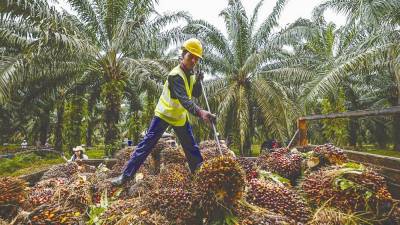
EVERY nation has the right to protect the environment and reduce the negative impacts. For example, in Malaysia, the relevant laws are being amended where penalties for pollution will be increased and, in some cases, affected parties can claim compensation. These steps are to deter polluters from committing such crime.
Similarly, the European Union (EU) has increased its environmental requirement for imports that are linked to deforestation. While it is the EU’s right to impose any new requirement, the affected parties will see this as a form of environmental trade barrier.
This is not the first time industries face such a trade barrier. More than two decades ago, ISO 14001 was used as a trade barrier to push downstream industries to comply with basic environmental management system. This step actually benefited the industries that quickly adhered to the new requirement and those which already had ISO 9001 certification.
However, with a ‘net zero’ target by 2050 and many voluntary commitments globally, the probability of more stringent, wider and technically challenging environmental trade barriers is very likely to happen. This situation will tilt the supply-demand situation globally for premium markets and will provide opportunities to demonise developing markets.
Protest and diplomatic channels are being used to request the EU to loosen the new requirement. Will the EU reverse its environmental policy? Can we prevent new and more stringent environmental policies in the future?
In 2023, the government is allocating RM10 million to fight the anti-palm oil campaign and a total of RM67 million was already allocated between 2020 and 2022.
After spending RM67 million, is the fight against the anti-palm oil campaign really working? Has the negative perception about palm oil subsided? How does publishing books for Malaysian school children and campaigns solve trade barriers built against the sectors which directly linked to deforestation?
Due to global misconception of sustainability, Global Warming Potential (GWP) has come into prominence and dictates overall sustainability parameters.
We hold the view that this is an extreme measure that will cause environmental imbalance globally. Environmental impacts from nuclear waste (which is a radioactive material), solar panels, batteries and electronic components cannot be measured using GWP alone as there are other environmental adverse impacts caused by these materials.
When the EU adopts power storage via battery as one of the solutions for net zero, what holistic environmental impact parameters has the EU considered?
Batteries rely highly on the mining sector and the contamination to water from mining is a very real environmental issue that needs to be solved. The contaminants may directly enter our food chain. We also know for a fact that there is no such thing as sustainable mining.
Thus, a “toxic tsunami” will engulf the world’s fresh water, soil and sea by sticking to GWP dominance. It is important that more parameters are included to achieve an aggregate value to meet balanced sustainability measurement to represent actual sustainability. We have communicated these issues clearly to the government in the past few years.
The Association of Water and Energy Research Malaysia (Awer) has repeatedly suggested to the government to use a more scientific and data-driven approach that will benefit Malaysia and improve palm oil and other related sectors’ standing globally. Recently, this suggestion was addressed to the finance minister and the plantation industry and commodity minister again to ensure Malaysia is prepared for more environmental trade barriers that will impact our industries and ability to attract foreign investors.
We need to accept the truth that monocrop and large-scale plantations have adverse environmental impacts not only in Malaysia but throughout the world. Thus, the important rule in this situation is that, all monocrop are subjected to the same negative impacts but it varies based on the climate and the time duration such large-scale land clearing took place. We need to quantify these parameters and develop scientific data to carry out relative comparison to benchmark actual environmental performance of all products.
Again, we urge the government to consider developing Life Cycle Assessment (LCA) for palm oil and expand it to other sectors. The LCA development starts with the “Gate to Gate” approach. This is a simplest form of LCA that only tabulates an operation’s environmental parameters.
Merger of “Gate to Gate” approaches will create “Cradle to Grave”, which is from resource until disposal. Finally, when resource recovery is being carried out at various stages, a “Cradle to Cradle” approach can be developed.
If government and industry sectors do not step up, we have more to lose as we do not equip ourselves with sufficient scientific data to fight the trade barriers using GWP against our businesses.
This article is contributed by Piarapakaran S, president of Awer, a non-government organisation involved in research and development in the fields of water, energy and environment.
Source: The Sun Daily
A word from our sponsor:
Need Help With Your Personal Finance / Money Issue or need a coach to help you structure or just want to learn the financial skill to self manage your financial matters and retirement. iLearnFromCloud.com
Need to solve a problem quickly, now you can solve it by learning the art of problem solving Art Of Problem Solving
Feeling hungry. Latest food news from Best Restaurant To Eat Malaysian Food and Travel Blog
Memory loss. Need to organize better. Solve problem fast with Free Mind Mapping Software Mind Mapping 101
Need A Customized System Development for your business or Going Paperless XPERT TECHNOLOGIES - Empowering The Paperless Economy

No comments:
Post a Comment